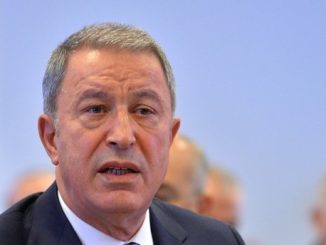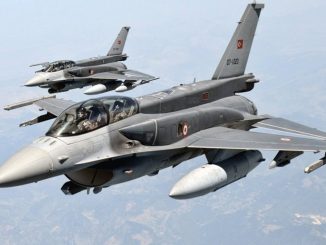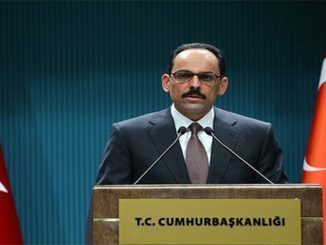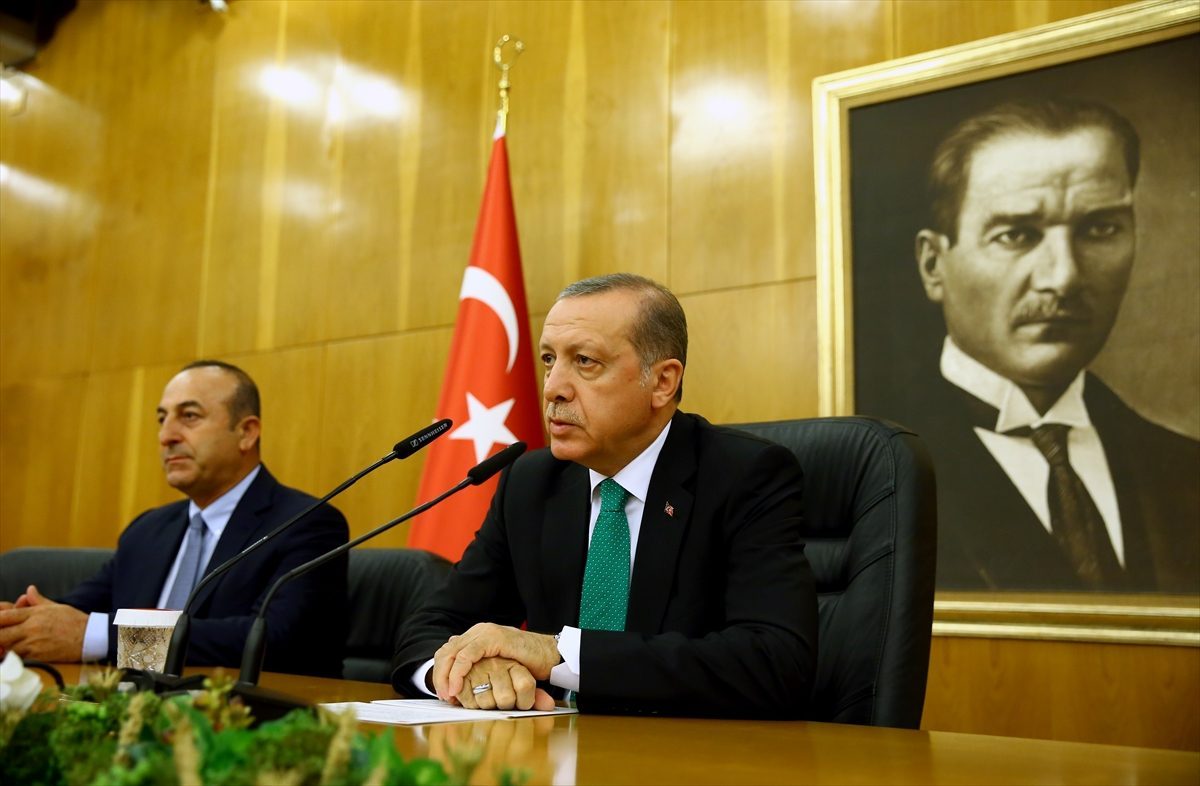
Turkish President Recep Tayyip Erdogan said Thursday that NATO needs to be more active and up-to-date amid the rapidly changing nature of security threats.
“The refugee crisis and migratory movements are affecting the whole world. Cyber-attacks, epidemics, and regional instability are being reflected even in geographically isolated countries,” Erdogan told reporters at Istanbul’s Ataturk Airport before leaving for a NATO summit in Poland.
“The nature of security threat concepts is undergoing drastic changes. During this process, NATO needs to be more active and update itself in the face of these new threats.”
He added, “We expect NATO to show much more effort in the face of developments that negatively impact Turkey’s security.”
The president said at the two-day Warsaw summit, leaders will discuss strengthening NATO’s defense and deterrence structure, among other subjects.
He said that the summit comes at a very critical time, days after the Daesh terrorist organization killed hundreds in Istanbul, Baghdad, and Medina.
“As we can see, international security is becoming more fragile,” he said.
Erdogan said that this is not a local problem affecting only some Middle East and North African countries. “On the contrary, all regions and all countries are being influenced,” he said, calling it “an issue of global dimensions.”
He said that the recent attacks carried out in France, Belgium, Tunisia, and the U.S. show that no matter how developed a country is, it cannot avoid the issue.
Speaking in Warsaw on Thursday, at a joint news conference with Polish President Andrzej Duda, NATO Secretary General Jens Stoltenberg said, “The world is a more dangerous place than just a few years ago.”
“And NATO is responding with speed and with determination,” he said, adding that the size of NATO’s Response Force has been tripled.
“Tomorrow and on Saturday we will take new major steps to further modernize our collective defense and deterrence and to project stability beyond our borders,” Stoltenberg said.
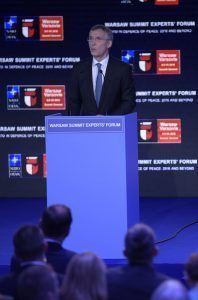
NATO chief in Warsaw outlines new deployments in Europe
Addressing a forum in Warsaw hours before a key summit of 28 NATO member states, the alliance’s Secretary-General, Jens Stoltenberg said, NATO will bolster its defense against hybrid threats, cyber-attacks and ballistic missile attacks from outside the Euro-Atlantic area. The alliance would take major decisions to address concerns of member states over a more assertive Russia.
“Today, we will agree to enhance our forward presence in the east of the alliance. In Estonia, Latvia, Lithuania, and here in Poland,” he said.
“We will deploy, by rotation, a robust, multinational battalion in each of the countries. Making clear that an attack against one ally will be met by forces from across the alliance,” he added.
NATO sources said each battalion would consist of around thousand soldiers. The U.K. is expected to lead the battalion in Estonia, and Germany would lead the battalion in Lithuania.
Another battalion in Latvia would be led by Canada and the U.S. would assume a leadership role for the battalion in Poland.
Stoltenberg underlined that NATO’s new deterrence measures in Eastern Europe would be defensive in nature, and they were not aimed at a new confrontation with Russia.
“We do not want a new Cold War. The Cold War is history. And it should remain history,” he said.
“We will continue to seek constructive and meaningful dialogue with Russia,” he said.
NATO-Russia relations soured further following Russia’s annexation of Crimea in March 2014 and its support for separatists in eastern Ukraine.
Eastern European countries have long called for a stronger NATO presence in their countries amid fears of a more assertive Russia.
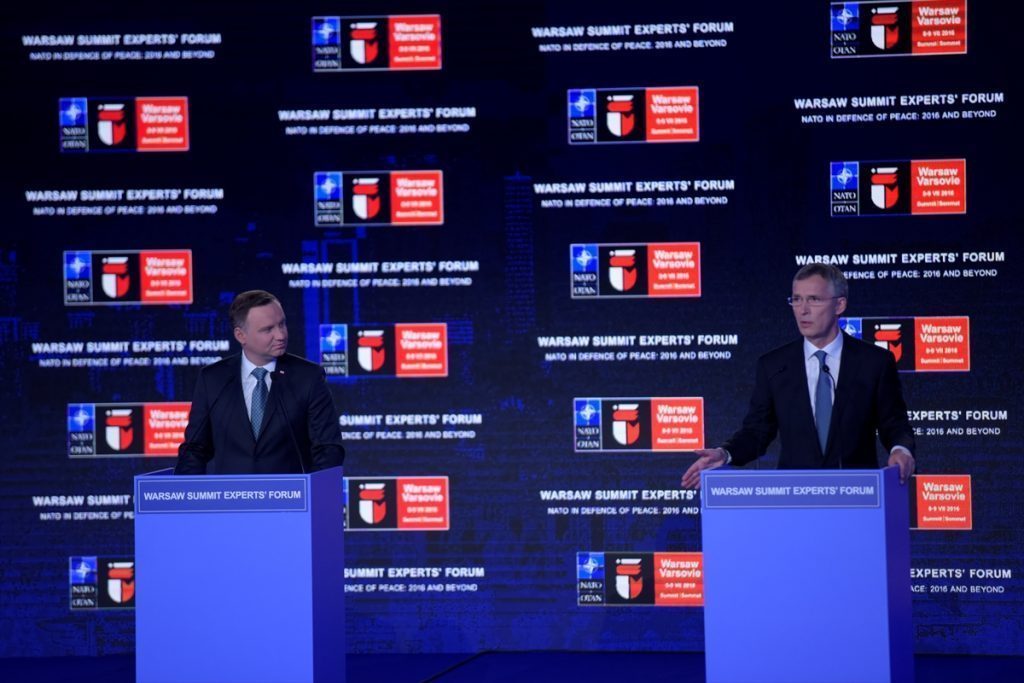
– Fight against Daesh
Stoltenberg said ahead of the NATO summit that the alliance will also increase its military assistance to the global coalition fighting Daesh.
“We will decide at the summit that NATO’s AWACS [Airborne Warning and Control System] planes will share information with the coalition. We will start to train Iraqi officers in Iraq. And we will continue to support Jordan and Tunisia. And we stand ready to assist Libya,” he said.
He underlined that recent measures taken by NATO has made it more ready to address new security challenges in a timely way.
“We have set up a series of small headquarters in the eastern part of our alliance, including here in Poland. They make it easier for us to plan and exercise, and to reinforce if needed,” he said.
“We have augmented Turkey’s air defenses with AWACS surveillance planes and defensive missile systems,” he added.
Leaders of 28 NATO member states are set to meet later in the day in the Polish capital. Major items on their agenda include deterrence measures towards Russia, future of dialogue with Moscow, fight against Daesh and global terrorism.
The leaders are also expected to discuss future of the Resolute Support Mission in Afghanistan.

